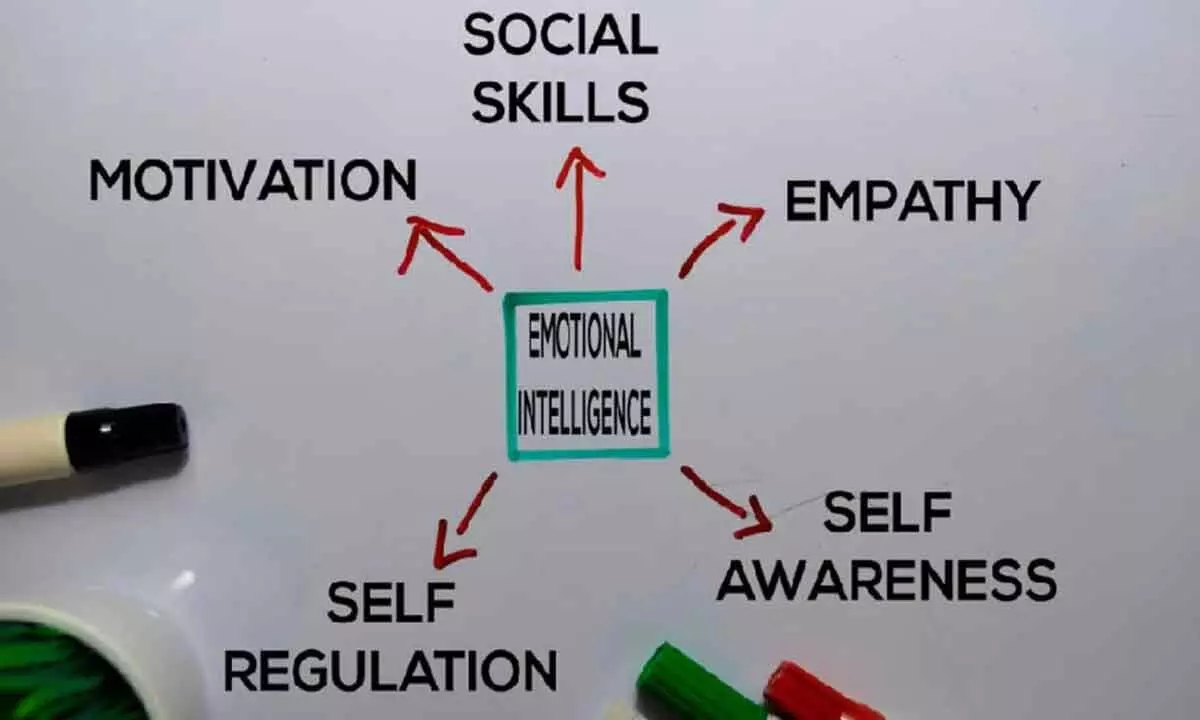Emotional intelligence vital for diversity and inclusion at work

Emotional intelligence vital for diversity and inclusion at work
The approach assures a prudent professional environment and helps respond effectively to work-related challenges
When we celebrate diversity and bat for inclusion at work, we certainly look at implementing policy measures, which elevate a non-discriminatory workplace culture. Although these measures can fuel worthy transformations, to bring into effect the real change, we need to go beyond regulatory mechanisms and create a shift in mindsets. Just like how the law can provide an impetus for paradigm shifts but revolutionary changes occur with social change, there is a need to look at a somewhat underrated element of diversity and inclusion efforts. There is enough talk of sensitization but that process might need to repeat itself several times to suit different registers of diversity. Thus, what we need is intelligence that acclimatizes individuals to changing their ways on their own in order to suit the changing circumstances and for such an outcome, emotional intelligence is indispensable.
Emotional intelligence has transcended its traditional definitions. It is not just about how we handle ourselves and maintain social relations, but it is all about receptivity and sensitivity to deal with evolving scenarios. As our workplaces become more diverse and are oriented to be inclusive, emotional intelligence can be a valuable asset.
Studies by the American Psychological Association, such as the one conducted by D.L. Joseph and his team, found a strong positive correlation between job performance and emotional intelligence. When such findings are applied in the context of diversity and inclusion, the case for intelligence grows stronger.
Emotional intelligence enables us to control our reception of difficulties, influence the professional environment prudently and respond effectively to work-related emotional challenges. This model is based on understanding and empathy and is directed at sustaining professional harmony. When our efforts are emotionally invested in diversity and committed to inclusion, we do not follow a predetermined script but pay heed to specific circumstances and needs. Learning, necessary confrontation, teamwork and a host of other concerns all become calibrated by a sagacious approach, which supports the diversity of identities and opinions.
For instance, Lee Gardenswartz, Jorge Cherbosque, and Anita Rowe from the Emotional Intelligence and Diversity Institute note, “In a diverse world, understanding and managing oneself is not enough. Knowledge about other cultural norms helps people to figure out the reasons and meaning behind the behavior of others. […] intercultural literacy, involves understanding others’ cultural rules, norms, and values. This understanding is the first step toward empathy for others and the ability, metaphorically, to walk in their shoes. Further steps in the process encompass resisting the temptation to judge others’ behavior according to one’s own cultural standards and seeing the advantages and disadvantages of all cultural norms. This awareness and knowledge helps us to read the behavior of others more accurately so we can deal with them more effectively.”
This sort of intercultural literacy can be accomplished when individuals operate from an emotionally mature standpoint. Instead of being accommodating because you’re following company policy, you are now willing to understand the differences to make diversity the new way of work. This is the difference that a good emotional quotient and careful thinking creates. In fact, in the domain of working, diversity and emotional intelligence go hand-in-hand. An article in BigThink fleshes out this connection which works both ways, “Diverse workplaces require us to think outside of our cultural boxes and encourage the same skills that emotional intelligence promotes. The same activities that can help ease intercultural issues in an office setting, such as shared activities between people of differing backgrounds and outings to places unfamiliar to some workers, would also work to help people develop emotional intelligence. It can be a virtuous cycle. In a Dutch study on the subject, diverse teams made up of people who were willing to learn performed better than homogenous teams. It supports the notion that when people have high EQs and are willing to learn, diversity becomes a limitless resource.”
It is therefore essential to bolster our soft skills like equiping ourselves with emotional wherewithal to have the right conversations and widen space for inclusion. Emotional intelligence is not just an irrepressible boost for the panorama of diversity; it is also a rewarding way to craft exemplary narratives of collaboration, teamwork, cooperation and productivity.
A better world and better workplaces await us and all we need to do is sharpen our emotional intellect.
(The author is Founder & CEO Upsurge Global and Adjunct Professor and Advisor EThames College)




